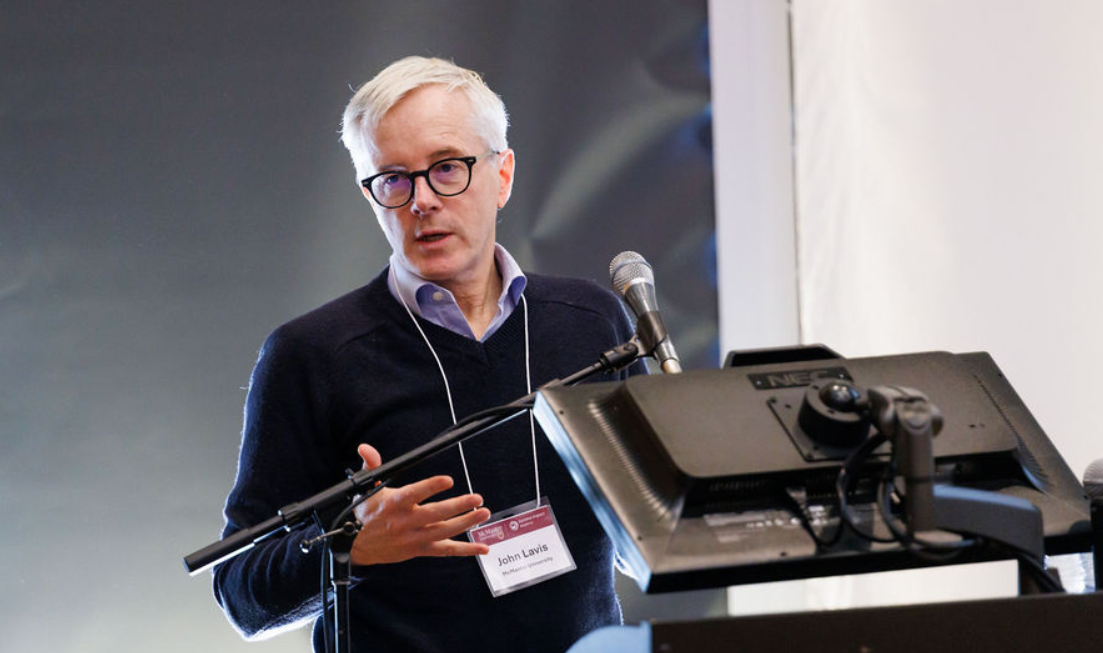McMaster Policy Exchange brings experts together to tackle misinformation in politics and health care

The McMaster Policy Exchange Roundtable brought together leaders from academia, government and the community to share insights and spark action on the issues of misinformation and polarization in politics and health care.
BY Daniella Fiorentino, Office of the VP Research
April 2, 2025
A new event at McMaster brought together policy and decision makers, academics, subject matter experts and community stakeholders to share ideas and shape evidence-informed public policy.
The inaugural Policy Exchange Roundtable was hosted through the McMaster Policy Exchange initiative.
Led by Sukhvinder Obhi, associate vice-president, Research (Society & Impact), the exchange connects leading experts with diverse disciplinary and experiential backgrounds to tackle key societal challenges and generate insights for policy makers.
The event was designed to spark discussions on some of the biggest challenges of our time, Obhi says: Matters like trust, misinformation and polarization in Canadian politics and health care.
“As our political and social landscape continues to evolve, it’s crucial that we identify new ways to work across sectors, disciplines and borders on public policy that advances a more informed and healthier world for all,” Obhi says.
“We were thrilled to showcase how our experts are mobilizing their research to affect positive policy change and provide a platform for dialogue and collaboration with our academic, government, industry and community partners.”
Vass Bednar, executive director of McMaster’s Master of Public Policy program, set the stage for the first panel discussion. Bednar, herself a public policy entrepreneur working at the intersection of technology and policy, explored the ways in which practices like shrinkflation, green washing and false advertising mislead and exploit consumers.

Panelists considered how misinformation and disinformation impact citizens’ trust in public institutions and officials — especially with the rise of digital technologies and social media platforms that enable the rapid spread of false information and increased polarization.
Keynote speaker Timothy Caulfield built on this discussion, tracing the history of misinformation in the public sphere through the 20th century to the present.
Caulfield is a professor in the Faculty of Law and the School of Public Health at the University of Alberta, where is he also Research Director of the Health Law Institute.
His work focuses on topics like stem cells, genetics, research ethics and public representations of science and health policy.
The second panel discussion explored trust and misinformation in health care.
Panelists spoke about how misinformation is impacting the ways patients engage with health systems and health professionals, emphasizing the importance of involving patient perspectives in health research and policy reform.

John Lavis, director of the McMaster Health Forum, summarized key takeaways from the day, highlighting the value of evidence-informed and lived experience-informed research, and the co-development of strategies with historically marginalized groups.
More than 100 policy innovators attended the event, which offered an opportunity for focused discussions and a valuable exchange of perspectives and ideas that can lead to real change, Obhi said.
“Thank you to our Policy Exchange team on Trust, Misinformation and Polarization in Canadian Society and to all those who joined us to share their work, make new connections and continue advancing positive policy change,” he said.
“This roundtable was the first of its kind; we look forward to reconvening in the future to explore a variety of strategic themes and grow our policy engagement and influence activities across spheres.”
Click here to learn more about the McMaster Policy Exchange.


